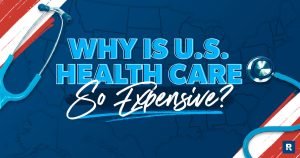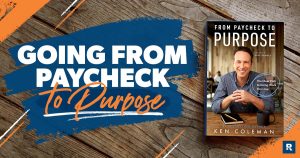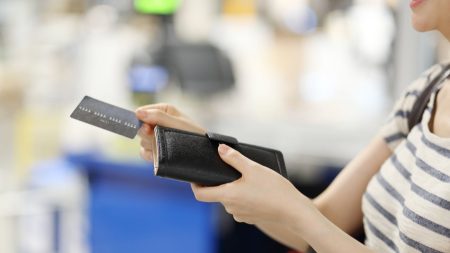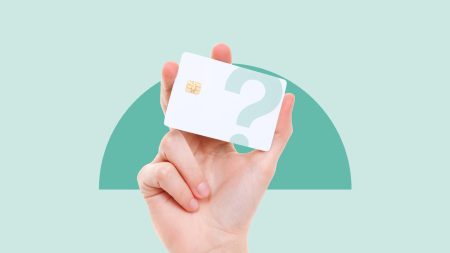NBC / Contributor / Getty Images
Key takeaways
- Some personal finance issues are timeless, but smart money habits can also make them avoidable.
- You can learn personal finance lessons from TV, but even more from experts in the industry.
- Today’s technology makes it even easier to follow simple finance rules to succeed with your money.
April is Financial Literacy Month, and for Millennials and GenXers, watching TV shows from the ’90s is a walk down memory lane with familiar friends. It’s a nostalgic escape to their formative years, away from everything that’s going wrong in the world today.
From iconic music and fashion movements to sports superstars and the dot-com boom, the ’90s were arguably some of the most culturally significant years in America. Known for its sitcoms, unpredictable sci-fi dramas and boundary-pushing storylines, TV in the ’90s cemented its place in American pop culture.
So hold on tight — the ’90s kid in you may want to revisit these shows with more experienced eyes. You may be surprised to find nuggets of personal finance wisdom layered within their plots.
Finance Lesson #1: Credit cards make it easy to overspend
“If you ever stared at your credit card bill in sheer horror and confusion like Joey did, you’re certainly not alone,” says Bankrate principal writer and credit card expert Ana Staples. To avoid overspending, Staples recommends viewing your credit limit as the issuer’s money, not yours. She also advises treating your credit card like a debit card, only spending funds that you have and making purchases you can pay off immediately.
It’s easy to get carried away with credit card spending. There’s no cash exchanging hands. Your checking account balance remains unaffected. It almost doesn’t feel like you’re spending real money.
— Ana Staples, Bankrate principal writer and credit card expert
If you do find yourself with credit card debt, Staples says to review your budget and track your spending to see where it got out of control. This can help you be more mindful when it comes to spending in that category.
Start paying off credit card debt
Once you know where to control your purchases, make a plan to pay off your debt. That could be through a balance transfer card, payment plans using the debt avalanche or snowball method or even a debt consolidation loan.
Finance Lesson #2: Emergency funds are the best financial safety net
While credit cards and emergency loans can help you fund an unexpected expense, they shouldn’t always be relied on for emergencies. Credit cards may be a good option because they provide funding right away, but that’s only true if you have the funds available.
Bankrate’s Credit Utilization survey found that almost 2 in 5 cardholders have maxed out a credit card or come close since March 2022. Relying on a credit card isn’t the best way to prepare for an emergency, especially if you use the card for other spending. Paying for an emergency through borrowing will likely make that expense more costly since you may have to pay it back with interest.
Relying on a credit card or emergency loan can create a cycle of stress, especially if you’re already navigating financial instability. Having cash set aside gives you options—and options create freedom.
— Rita-Soledad Fernández Paulino, founder of Wealth Para Todos
The best personal finance safety net is through an emergency fund. To start an emergency fund, Paulino recommends figuring out one month’s worth of fixed and variable expenses and setting a goal based on that number and your job stability.
“If you think you could find a new job within three months, aim for a three-month fund,” Paulino says. “If it could take longer, work your way up to six or nine months. You can also accelerate your savings with any lump sums that come your way—like a tax refund or a work bonus.”
Finance Lesson #3: Use windfalls to help your finances
Financial windfalls can be a pleasant surprise for anyone, and it can be hard not to use the money for fun because it can feel like a gift. Even the most savvy budgeter might be tempted to spend unexpected money that isn’t assigned to a specific category, but an even better move to make with windfalls is using them to improve your finances.
When receiving a financial windfall, the key is to be intentional before making any big moves. The best choice depends on your financial goals, but a mix of security, debt reduction, and future growth can make a short-term windfall work for you long-term.
— Bernadette Joy, personal finance expert, coach and founder of Crush Your Money Goals®
Not sure what to do with your windfall? Joy recommends using new-found cash in the following ways:
- Creating a cushion or contingency fund for unexpected expenses.
- Paying off high-interest debt to free up cash flow and reduce financial stress.
- Maxing out annual retirement contributions to reap the benefits of long-term growth.
- Paying extra toward debt to reduce interest costs and shorten loan terms.
Bottom line
Even decades apart, today’s adults face the same kinds of money issues as generations before them, but just as these issues persist, so do their remedies. These personal finance lessons aren’t new, but technology is.
These days you can track your spending, make loan payments and trade stocks on your phone. Even traditional lending can be done entirely online, from application to funding (’90s shows also cover lessons on lending). Pairing these long-established personal finance lessons with present-day technology can help you build smart money habits to succeed with your money.
Read the full article here









